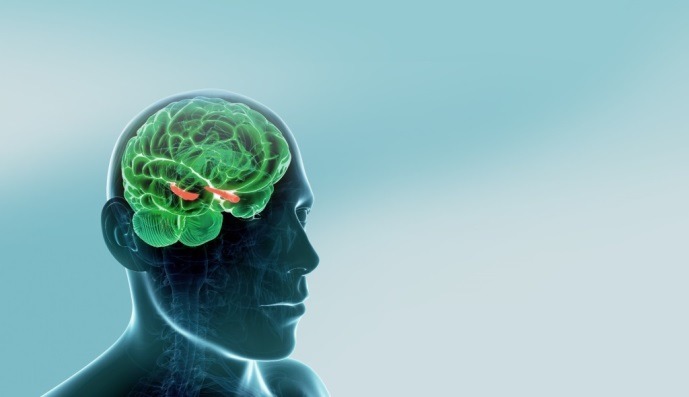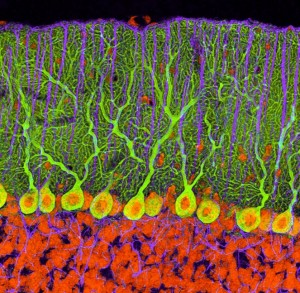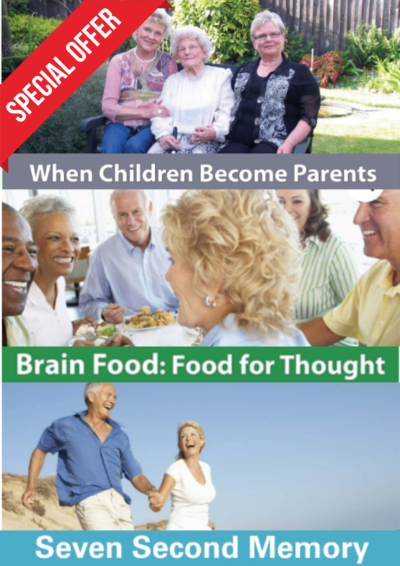Yes. Here’s how, and why it matters
 A pair of thumb-sized structures deep in the center of the human brain are critical for our ability to learn and remember. Thanks to their shape, each of them is called hippocampus — which means seahorse in Greek. These brain areas have the unique capacity to generate new neurons every day.
A pair of thumb-sized structures deep in the center of the human brain are critical for our ability to learn and remember. Thanks to their shape, each of them is called hippocampus — which means seahorse in Greek. These brain areas have the unique capacity to generate new neurons every day.
In fact, recent human studies have shown that there are 700 new brain cells in the hippocampus every day.
Most of these neurons, however, do not survive. In their new-born (pre-mature) phase, they need a great deal of support to survive, grow, and become an active member of the hippocampal community of neurons.
Research shows that we have the capacity to grow new neurons above and beyond what is generally produced in our hippocampus and to make them become mature and strong within weeks and months.
The best way to generate new hippocampal neurons is to exercise.
In one study comparing brains of two groups of mice, the group that was assigned to running (lived in a cage with a running wheel in it) generated far more new neurons in their hippocampus than the group that was assigned to a regular cage without a running refill. Other studies have shown that people who exercise regularly and are physically fit have a much bigger hippocampus.
The more you walk, the bigger your hippocampus will get and the less would be your risk for developing Alzheimer’s disease. One study showed that walking one mile a day lowers the risk of Alzheimer’s disease by 48%.
Recent research has also provided information about how hippocampus can grow even without generating brand new neurons. The small premature neurons that are born every day have the capacity to grow taller, larger, and stronger by getting the right nutrition, plenty of oxygen, a molecule called BDNF (Brain Derived Neurotrophic Factor) and stimulation.
Some of the ways we can mature and nourish hippocampal neurons include eating a Mediterranean diet that includes olive oil, salmon and other food that are high in omega‑3 fatty acids, and nuts. Omega‑3 fatty acids are also  available as DHA and EPA supplements. My recent research, published in Nature Reviews and referenced below, showed that higher blood levels of these important fatty acids, which are the building blocks of neurons, is associated with larger hippocampus size, better memory, and a much lower risk of developing Alzheimer’s disease.
available as DHA and EPA supplements. My recent research, published in Nature Reviews and referenced below, showed that higher blood levels of these important fatty acids, which are the building blocks of neurons, is associated with larger hippocampus size, better memory, and a much lower risk of developing Alzheimer’s disease.
The fascinating new neuroscience discoveries have provided compelling evidence on how other simple lifestyle interventions can also grow the hippocampus size.
- Stress reduction and meditation have been shown to substantially expand the volume of hippocampus.
- Treatment of sleep apnea, with using a CPAP machine, is another way you can grow your hippocampus.
- Learning a new language or challenging one’s brain by learning new facts is yet another way to grow the very part of your brain that is critical for our ability to keep your memories alive for a lifetime and stay sharp as we get older.
Unfortunately, hippocampus can shrink as easily as it can grow.
Some of the ways to quickly shrivel it within months or years include:
- stress, anxiety,
- untreated depression,
- obesity,
- uncontrolled diabetes,
- sedentary lifestyle,
- eating junk food,
- and concussions.
Each of these negative risk factors have been associated with a smaller size hippocampus and a higher likelihood of developing Alzheimer’s disease in the future.
In summary, for the first time we have solid scientific evidence that we all have the capacity to grow the part of our brains that shrinks with aging and makes us prone to developing Alzheimer’s disease.
A bigger hippocampus can protect us against dementia symptoms in our 70s and 80s. These exciting new discoveries should empower all of us to be proactive in keeping our brain healthy today and to ward off Alzheimer’s disease decades later.
[A Harvard and Johns Hopkins-trained neurologist and neuroscientist, Dr. Majid Fotuhi is chairman of Memosyn Neurology Institute, Medical Director of NeuroGrow Brain Fitness Center, and Affiliate Staff at Johns Hopkins Howard County General Hospital.]





As always stimulating to read about new research.
Thanks
Alan
And it is encouraging for us to keep up the challenges that will keep the brain connections active and growing!
Very useful, Gillian, to be told that it is natural that the present plight of those in West Auckland and Mangere will affect us in some way. It has been much worse since Cyclone Gabrielle came along, and the subsequent heavy rain every fortnight. I personally am safe, and in East Auckland though we have had heavy rain it has not even driven down my drive like the flood two years ago.
Nevertheless, the toll on my
anxiety ridden self is considerable, and certainly spoiling my life. I have had some Cognitive Therapy counselling, but really, though one technique can help, it only works if I am sitting down. Due to minor injury through a couple of falls, I have not got the confidence of two years ago in doing without a walker, though I am still
driving. I am still using my computer and phone text a lot, and can read for pleasure, but there is the underlying breathlessness and the anxiety. I have found Bach flower combinations the most successful, and have been in touch with my practitioner again.
Recognizing that the stress and worry in the community affects all of us is the first step in recovering so I am so pleased that you are taking steps to keep your anxiety under control. Slowing your breathing and deliberately doing a relaxation exercise will help you keep centred. Here is an article that may give you some more ideas. https://www.brainfit.world/conquer-stress/ Please take care, Margaret.
It is encouraging to realise that the hour I spent trying to work out how many 4-wheeled and 3-wheeled vehicles, with 4 4-wheelers extra, fitted into 97 (was it?), was not entirely wasted! For someone with Chronic Fatigue, that’s quite important.
Pile on the difficult puzzles!
Well done! That puzzle IS a challenge, I know and I have been so impressed by the number of our Foundation Members who have persevered with it to find the pattern and a way to unravel the task. You will definitely have activated and grown those dendrites! Especially as you challenged yourself while at the same time coping with fatigue. You are a star!
A very interesting article and I am going to have to walk a little more each day, thanks for the reminder. Also I am enjoying the challenge of the puzzles and find myself looking at problems in an entirely different way, no saying too hard, trying even though my efforts may not be correct. Thank you for your ongoing encouragement.
Well done on keeping trying! That’s definitely the way to grow the hippocampus and to keep the dendrites growing and activated. The solution isn’t everything although it can be really, really frustrating not to ‘get something right’. (A hangover from schooldays when being ‘wrong’ resulted in a big red cross – learning has come a long way since those days.) Changing the way we approach problem-solving is a revelation and can unlock a whole new outlook on life!